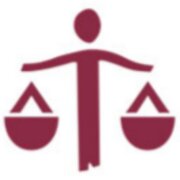Best Lawsuits & Disputes Lawyers in Cape Town
Share your needs with us, get contacted by law firms.
Free. Takes 2 min.
List of the best lawyers in Cape Town, South Africa
South Africa Lawsuits & Disputes Legal Articles
Browse our 3 legal articles about Lawsuits & Disputes in South Africa written by expert lawyers.
- A Guide to Navigating Divorce Proceedings in South Africa
- Navigating Divorce Proceedings in South Africa Key Takeaways Ending a marriage in South Africa involves navigating specific legal channels, from deciding on child care to dividing assets based on your matrimonial property regime. Understanding the procedural differences between regional courts and the High Court can save you significant time, money,... Read more →
- Consumer Protection Act Guide for South Africa Home Buyers
- The Consumer Protection Act (CPA) applies only to property sold by developers or investors in the ordinary course of their business, not to private sales between individuals. Developers cannot use the "voetstoots" (as-is) clause to escape liability for latent defects under the CPA. Buyers have a statutory right to receive... Read more →
- How to File a Road Accident Fund Claim in South Africa
- Claims for accidents where the driver is identified must be lodged within three years of the incident. "Hit and run" claims involving unidentified drivers have a much shorter deadline of only two years. General damages for pain and suffering are only available if your injury is classified as "serious" (30%... Read more →
About Lawsuits & Disputes Law in Cape Town, South Africa
Legal disputes, traditionally referred to as lawsuits, form an integral part of the legal landscape in Cape Town, South Africa. South African law is based on the principle of Roman-Dutch law, which is influenced by English Law. In the area of disputes, it covers a broad spectrum, including civil litigation, commercial litigation, family disputes, contractual disputes, property disputes, and more. The procedures, rules, and laws regulating and affecting such disputes are enshrined in the Constitution of the Republic of South Africa and various statutes, Acts and Common Law principles.
Why You May Need a Lawyer
The complexities of South African law and the high financial and personal stakes often involved in disputes could necessitate involving a lawyer. You may need a lawyer's expertise when entering into, interpreting, or enforcing contracts to avoid pitfalls and future disputes. If you're dealing with business disagreements, disputes regarding estates, damage to personal property, or civil litigation, legal advice is highly beneficial. Family disputes, such as divorces or child custody battles, also require the sensitivity and guidance a lawyer can provide.
Local Laws Overview
Disputes in Cape Town are governed by a combination of Constitutional, Civil, and Common law. The Constitution guarantees the right to a fair trial and access to the courts. The Magistrates’ Courts, High Court, Supreme Court of Appeal, and the Constitutional Court oversee different levels of disputes. The Prevention and Resolution of Disputes Act is another important law, which mainly pertains to labour disputes. The Companies Act governs disputes concerning company law, while family-related disputes are covered under the Family Law Act and the Divorce Act.
Frequently Asked Questions
What kind of disputes are typically handled by the courts in Cape Town?
Disputes handled by the courts in Cape Town range from civil matters such as personal injury, defamation, contract violations, to commercial litigations like shareholder disputes, intellectual property disputes, business frauds, and more.
Can I represent myself in a dispute?
While self-representation is allowed, the intricacy of South African law usually makes it unadvisable unless one has a deep understanding of the law and court procedures.
What does litigation involve?
Litigation involves the legal process to determine and enforce legal rights, responsibilities and claims of parties involved in a dispute.
What is alternative dispute resolution?
Alternative dispute resolution (ADR) is a process, other than judicial determination, in which a neutral third party assists those involved in a dispute to resolve the issues between them. Methods include mediation, arbitration, or negotiation.
How long does a dispute take in court?
The duration of a dispute in court can range from several months to several years, depending on the complexity of the matter, the number of involved parties and the court’s schedule.
Additional Resources
Beneficial resources for those seeking additional information include the Law Society of South Africa, Legal Aid South Africa, South African Women Lawyers Association, and South African Human Rights Commission. These organizations provide a range of services from legal aid to law reform advocacy.
Next Steps
If you find yourself needing legal assistance in a lawsuit or dispute, your first step should be to seek advice from a legal professional. This may involve scheduling a consultation with an attorney, contacting a legal aid clinic or seeking advice from a legal information center. A lawyer can guide you through the appropriate next steps and ensure your interest is adequately protected.
Lawzana helps you find the best lawyers and law firms in Cape Town through a curated and pre-screened list of qualified legal professionals. Our platform offers rankings and detailed profiles of attorneys and law firms, allowing you to compare based on practice areas, including Lawsuits & Disputes, experience, and client feedback.
Each profile includes a description of the firm's areas of practice, client reviews, team members and partners, year of establishment, spoken languages, office locations, contact information, social media presence, and any published articles or resources. Most firms on our platform speak English and are experienced in both local and international legal matters.
Get a quote from top-rated law firms in Cape Town, South Africa — quickly, securely, and without unnecessary hassle.
Disclaimer:
The information provided on this page is for general informational purposes only and does not constitute legal advice. While we strive to ensure the accuracy and relevance of the content, legal information may change over time, and interpretations of the law can vary. You should always consult with a qualified legal professional for advice specific to your situation.
We disclaim all liability for actions taken or not taken based on the content of this page. If you believe any information is incorrect or outdated, please contact us, and we will review and update it where appropriate.
Browse lawsuits & disputes law firms by service in Cape Town, South Africa
Cape Town, South Africa Attorneys in related practice areas.















